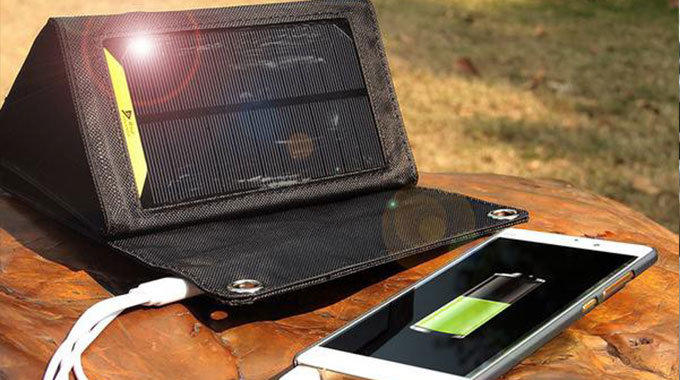Letters to the Editor . . . Fake solar products flood market

Sifelani Tsiko
Fake solar inverters, bulbs and batteries have flooded the local market and an energy expert has warned that the country’s energy regulatory authority would soon embark on a blitz to flush out dealers selling fake products.
Engineer Nobert Mataruse, a top Zimbabwe Energy Regulatory Authority official told participants at an energy conference recently that customers had to be cautious because the market was awash with fake solar products.
“In recent months we have witnessed an influx of solar products which are not appropriate,” he said. “We will be descending on the culprits at the Gulf Complex (a market in downtown Harare) who are selling fake products.
“There are some unscrupulous dealers who are selling solar panels which are inscribed 300w when in actual effect they only generate 200w or less. Zera has taken delivery of a solar testing plant and very soon we will go on a blitz, confiscating all fake solar products.”
BoldAds Events, a division of the Zimpapers Group in partnership with Hivos and Destiny for Africa hosted the conference under the theme: “The Status of Energy in Zimbabwe and Innovative Alternatives.”
The conference which attracted participants from various sectors of the economy sought to explore renewable energy solutions for the country.
Peak winter energy demands, constant breakdowns at Hwange Power Station, falling water levels at Kariba Power Station and lack of foreign currency to import power from South Africa and Mozambique has led to the rolling out of power cuts lasting up to more than 10 hours daily in most parts of the country.
This has driven up demand for solar energy systems for both domestic and industrial consumption.
Apart from solar power, wood has become the main source of heating and cooking for the majority of the poor.
Zesa, the country’s power utility, imposed the worst rolling blackouts in the first half of the year, with households and industries going without electricity due to lack of foreign currency, declining water levels at Kariba hydropower station and obsolete equipment at the Hwange Thermal Power Station.
Many settlements throughout the country are now receiving less than seven hours of electricity per day from the national grid, pushing up demand for home solar systems, firewood and charcoal in both urban and rural areas.
The rising demand for solar has led to the entrance of massive counterfeit and substandard solar panels accessories in various local markets in the country.
Participants at the energy conference said most Zimbabweans were being ripped off by dealers selling counterfeit and substandard products.
“In downtown Harare most dealers are selling fake solar panels and associated accessories — especially solar batteries,” said an energy expert.
“This has posed inconveniences and costs especially for the poor people who are desperate for solar energy. Zera needs to take drastic measures to protect the poor otherwise this will lead to conflicts on the market.
“We risk losing the confidence of the consumers and the services we give to our clients. Trust will be lost.”
Some energy experts say the solar market has been infiltrated by dishonest dealers in the solar panel business who are using fake printed labels and fake receipts of non-existent companies to avoid liability.
They say most retailing shops in the country were selling substandard solar products which do not meet local and international standards.
Most were reportedly not keen to seek certification from Zera and the Standards Association of Zimbabwe.
Experts blamed the country’s highly porous borders and lax surveillance and control mechanism at the country’s ports of entry.
In addition, they say weak control systems of counterfeit and substandard solar products, lack of public awareness of genuine solar energy products, lack of enforcement and management of importation procedures and profiteering has added to the woes. “Many people are struggling to access energy and without adequate money they often look for cheap solar products,” said another energy expert.
“Customers are often asked by the dealers whether they want original items or cheap ones. To save money most Zimbabweans go for cheaper ones without knowing that they are fake.”
Rose Mpofu of the Consumer Council of Zimbabwe said there was need for more public awareness campaigns on genuine solar products and technical information on them.
“People need information and knowledge on solar products,” she said. “They need to be sensitised and well informed on solar standards.”
Conference participants felt strongly that there was a need to develop practical measures to curb the influx of substandard solar panels and accessories.
“Zera is doing all it can to raise public awareness,” said Eng Mataruse. “Very soon we will be going a campaign across the country to raise public awareness. On our website we have a list of reputable solar dealers and not the dishonest ones we see at the Gulf Complex.
“We won’t hesitate to confiscate fake solar panels once we start using our solar testing plant equipment.”
Zera, he further said, would soon undertake the testing of solar products as the Authority was keen on controlling the substandard and counterfeit products.
Eng Mataruse said Zera will continue to raise public awareness and educate the public on soalr products and other renewable energy products.
“We want educate Zimbabweans on genuine solar products so that they can be able to identify and access genuine solar products,” he said.
Tawanda Muzamwese, an energy expert, told participants that low perception of renewable energy in the society was also a big challenge in the uptake of renewable energy.
“People still face problems when it comes to the purchase of renewable energy components, prices are still prohibitive, they also have to contend with fake products which are not durable and have no warranty, some of the solar equipment for example are not user-friendly,” he said.
“The quality of the products still remains largely unmonitored and most people do not have the correct capacity and power rating of the equipment.”
Some energy experts say most fake solar products come from China, Indonesia, India, Dubai, Taiwan, Thailand, South Africa and Nigeria.
The use of substandard panels has affected the amount of energy consumers get, leading to massive losses.
Experts also say there are distributors who also sell under-rated panels at higher values while others have also been found to tamper with the wattage on the solar panels, forcing customers to pay more for low wattage panels.
They encourage clients to do solar panel testing to ensure that they get the wattage they will have paid for.
In addition, they urged clients to buy products from registered solar companies which were able to conduct the test. “People should buy solar products from a licensed distributor and insist on getting a warranty,” said a renewable energy expert.
“They should monitor their solar system regularly during the warranty period to detect any defects such as the peeling off of the outer protective coating. In case you detect defects or inconsistencies, launch complaints immediately.”









Comments